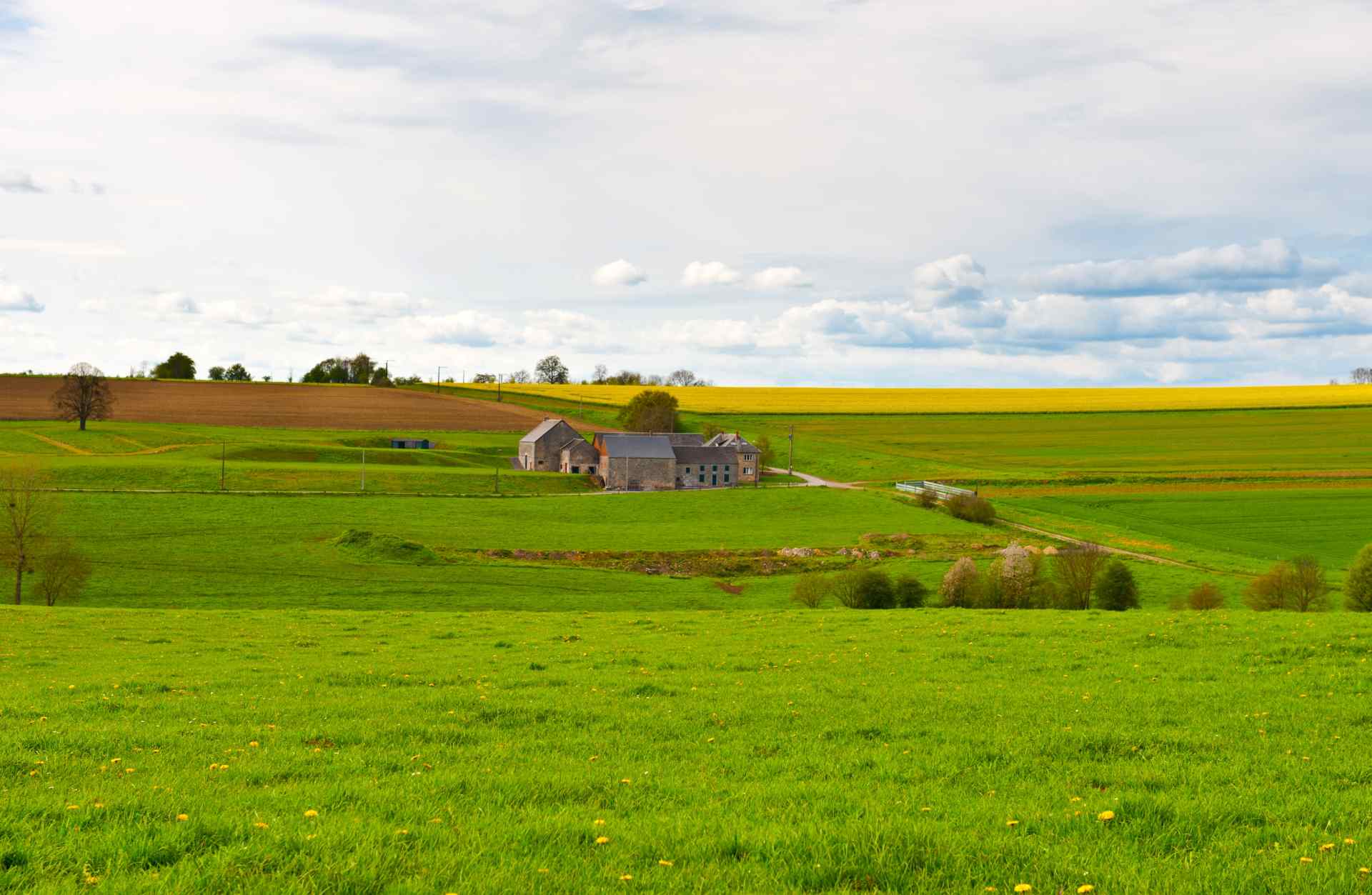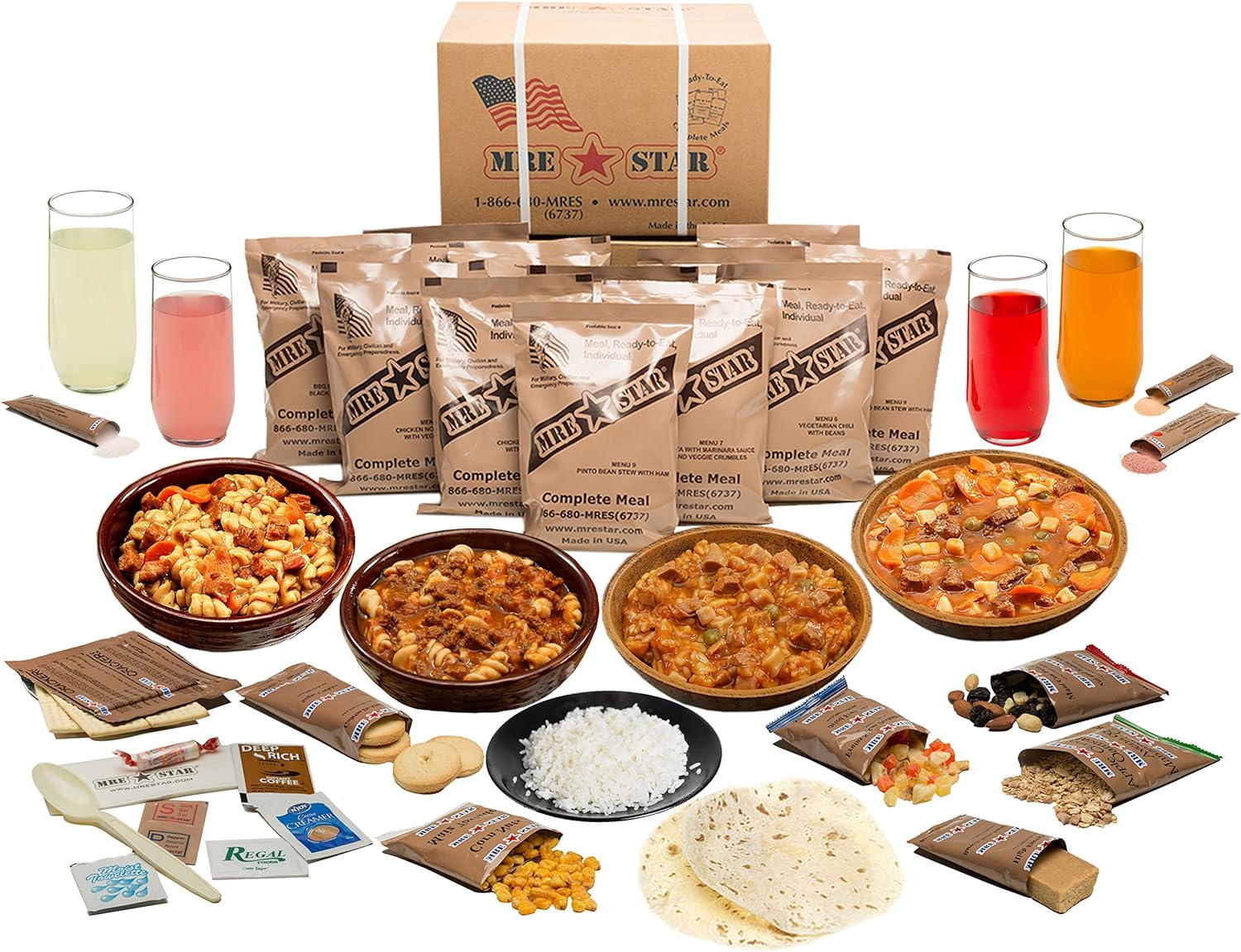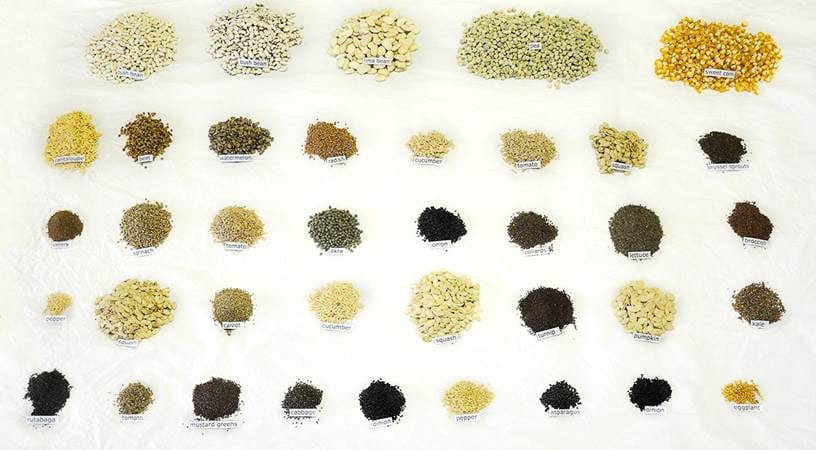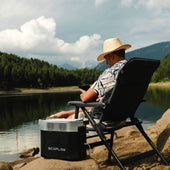Is the American dream of getting free land from the government still feasible? Many who wish to turn their back-to-the-land dreams into reality amuse themselves with this question.
In this post, we shall discover the new reality behind this juicy opportunity.
We're digging in deeper, from the historical roots of the Homestead Act to the current pathways of owning land without draining one’s funds.
Therefore, get your sense of adventure going, and let's see if you can still get free government land for your homesteading.
What is Homesteading?
What is homesteading? As Wikipedia defines it, "homesteading is a lifestyle of self-sufficiency. It is characterized by subsistence agriculture and home preservation of foodstuffs. It may or may not also involve the small-scale production of textiles, clothing, and craftwork for household use or sale".
Homesteading is the act of being self-sufficient. It is utilizing your land to provide and meet your needs and your family's. Homesteading can be made into many things, as Wikipedia informed us above.
Here's an infographic that explains homesteading holistically and illustrates the foundational principles, key activities, and the importance of utilizing natural resources. 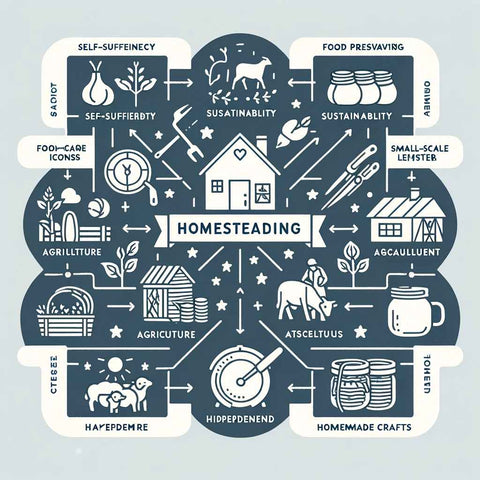
It is a practical means of survival. Homesteading allows you to create your own lifestyle. You can control what you bring into your house and your body. It is also security from all the commercialized products that are now becoming more harmful by the minute.
There is no definite picture of what homesteading should look like. However, you create your lifestyle at your own pace and perception of it. If you are self-sustaining by utilizing the resources around you, that could be homesteading.
A common misconception is that you need acres of land to do homesteading. That is untrue. You could have a small lot of land and still nurture and develop it to create something useful.
How is Homesteading Important?
In an age where the integrity of our consumables is so easily trifled with in the interest of convenience and profit, homesteading shines like a light of freedom and purity. It is one of the many testaments to sound out self-reliance for the health and safety of our environment and ourselves.

Current Situation
As we enter the 21st century, the landscape of food production and consumer goods is rapidly becoming industrialized. These processes often favor profitability and efficiency over the health and care of consumers and the environment.
Product safety is a growing concern for manufacturers in virtually every sector, and they are. They must offer products that meet the need for convenience and low cost, often at the expense of quality and safety. Technological advances and the demand for goods in an international market drive this.
- Concern for Safety and Purity: In an era where tech advancements and the chase for ease normally shadow health and safety, consumables' purity is questioned.
- Manufacturing Priority: Safety is usually a trade-off in many manufacturing situations since cost-cutting and convenience come before quality.
The Problem with Modern Products
As fast as society advanced, the attraction of modern products often hid a rather worrying reality: a compromise of quality and safety for convenience and aesthetics.
In this case, aesthetic standards precede health considerations, best reflected in practices like applying candle wax to apples to make them shine more vividly.
This extends across all industries, raising the question of whether too much emphasis is placed on appearance and cutting costs over consumer safety and the quality of the products they use.

- Example: Waxing apples for artificial shininess is quite common for a few producers, representing a general tendency to appear before product health and safety.
- Common Practices: This is not unique to Apple; similar widespread practices apply to all products in almost every sector where measures of deception compromise safety.
Homesteading as a Solution
Indeed, as people gradually lost trust in the efficacy of large-scale production, homesteading became an effective tool for re-establishing the original values of self-sufficiency.
It is more about a conscious decision to prioritize fresh, clean, and safe food and goods by controlling the production chain first and foremost.
Adopting this homestead lifestyle will help people take care of themselves. They will also have a deeper and more personal relationship with the environment, guaranteeing sustainable approaches that benefit individuals and nature.
Guaranteed Quality:

- Fresh, Pure, and Safe Foods: Homesteading provides fresh, pure, and safe food and produce.
- Control Over Production: It ensures total control over production, from selecting the inputs to cultivating and processing practices.
Benefits of Homesteading:
- Nurturing the Land: Homesteaders care for the land and promote sustainable practices that benefit the environment and consumers.
- Monitoring Progress: Homesteading's hands-on approach enables close monitoring of product development, ensuring optimum quality and safety.
Homesteading convincingly answers modern consumers' concerns about healthy and sustainable living. By embracing its ideals, one can achieve a high degree of self-reliance, grow concern for environmental protection, and govern the surroundings well, which results in the quality and safety of foods and other consumables.
What does it mean to Get Free Land?
Land acquisition forms a basic and integral part of homesteading, but obtaining free land today is increasingly challenging.
Traditionally, homelands were given out by government bodies that supported the settlement of the interior and encouraged growth and development in the lands of native peoples.
On the other hand, this quality well-site is no longer there, and, at the same time, only certain projects for community growth can provide such an opportunity.
Where to Find Free Land
Free land opportunities generally exist in underdeveloped communities that are experiencing a need for population growth and economic stimulation.
The trade-off for living in these areas is typically the need for more modern amenities, such as gas stations, hospitals, and retail stores.
The trade-offs of living in these locales can include proximity to nature and possible financial incentives, such as exemptions from property and state income taxes.
Things to Consider Before Moving
-
Community Dynamics: Most free land opportunities are in small developing communities. Prospective homesteaders would need to be prepared to live in places that offer quieter lifestyles, with fewer activities and amenities than a more populous center might have.
-
Lifestyle change: Living in these areas can mean sacrificing convenience to be self-sufficient and live in beauty. The lifestyle change of being away from many services and not having that many will take some planning and adjustment.
-
Financial Benefits: Though some people may find the lack of amenities a downside, the advantage is that it offers great financial savings on taxes and living expenses. This greatly appeals, most notably to people who want to live a simpler, more economically sustainable life.
Getting free land for homesteading is less about being lucky and more about the willingness to embrace growth projects for the community in undeveloped areas.
Before moving, the advantages of financial savings and living closer to nature must be balanced against the disadvantages of adapting to a less convenient lifestyle.
Can we still get Free Land from the government?
Generating national wealth additionally suggests that the U.S. government's offer of free land as a reward for homesteading has ended.
The federal program previously provided or leased the land at no cost, but now all government-owned lands are open for sale at the specified market value.
Understanding the Change
Federal Land Policy Shift
The Federal Land Policy and Management Act of 1976 paved the way for a remarkable policy change, focusing on retaining federal lands except when disposed of to protect the national interest.
The present act finally ended the Homestead Act of 1862 by handing over the management of public lands to other policies.
-
Comprehensive Land Management: The Federal Land Policy and Management Act of 1976 (FLPMA) established an organizational structure for public lands. The major goal was long-term stewardship and sustainability rather than just selling the lands.
-
Environmental Considerations: FLPMA prioritized the environment, stipulating that land use plans consider the impacts on soil, air, and water resources. Furthermore, wildlife should be considered.
-
Public Involvement: The bill put all spots of a land use plan into people's hands. Every single thing there would satisfy the diversity of interests and services.
-
Multiple Use Doctrine: It enshrined the principle of "pluricultural management," aimed at balanced preservation and development of natural and cultural inheritance.
-
Resource Inventories: FLPMA enlarged the scope of the Bureau of Land Management, which should keep the inventories of all the public lands, resources, and values for schools or park management offices.
Conditional Free Land
Free land is still available in some smaller communities; however, it must be acquired according to regulations. Beneficiaries generally prefer to engage with the community by working to increase job opportunities or improve local services.
-
Economic Growth Initiatives: Small towns' free land schemes often are purely economic growth driven, and they aim to get new residents and businesses to settle down in the area for improved efficiency.
-
Infrastructure Development: As a beneficiary of the fund, the administrative team may have to implement infrastructure development by constructing roads, water and energy utility facilities, and community recreation to improve service to the local community.
-
Residency Requirements: The programs for newcomers are established based on the minimum time they require their participants to reside so that they can achieve a sense of livelihood and unity.
-
Sustainable Practices: Some recipients might also be motivated to adopt environmentally friendly land use and building construction practices to demonstrate environmental stewardship.
-
Community Service: Furthermore, participants must create jobs, upgrade facilities, and participate in community service. Thus, they will not only be reminded of their belonging but also be mutually supported.
Current State Offerings
Despite the end of the federal program, a few states still offer land under specific community growth and development conditions. These states include Iowa, Kansas, Alaska, and Michigan, each with its eligibility requirements.
|
State |
General Requirements |
|
Iowa |
- Must build a residence within a specified timeframe. - Commit to living in the community for a certain number of years. - May need to prove financial stability to ensure construction completion. - Engage in community activities or development projects. - Property must be maintained according to local standards. |
|
Kansas |
- Construct a home within 12-24 months. - Meet certain income guidelines to ensure economic stability. - Engage in community development activities. - Maintain the property as a primary residence for a set period. - Participate in local governance or community service efforts. |
|
Alaska |
- Utilize the land for specific purposes (e.g., residential, agricultural). - Maintain residence for a minimum duration. - Contribute to the local economy or infrastructure. - Adhere to environmental conservation guidelines. - Participate in community planning or development committees. |
|
Michigan |
- Develop the land according to local planning requirements. - Participate in community or economic development projects. - Residency requirements for certain periods. - Implement sustainable land use and building practices. - Contribute to the enhancement of local educational or health services. |
Please note: This table provides a general overview; the requirements for each program can be more detailed and specific. Potential applicants should contact local municipal or state offices for accurate and up-to-date information about free land programs.
Alternative Paths to Free Land
The idea of having a piece of land is as old as civilization, and how one acquires it has evolved greatly. Although long-used homesteading methods are hardly available nowadays, disadvantaged but persistent individuals still have other options for getting free or nearly free land.
These alternatives require diligence, research, and a willingness to meet certain conditions or contribute to community development.

Research and Requirements
-
Community Development Programs: Some municipalities help newcomers and business owners by equalizing the costs of land transactions and thus establishing new residencies, especially in environmentally or demographically depressed areas. Such programs often allow the beneficiaries to build livable houses or found businesses within a certain period, as some extra conditions may be added to the requirements of taking up employment or investing in the local economy.
-
Land Banks: Land banks are the public authorities established to take ownership of such lands, and the same is managed undoubtedly and is put on sale when such lands are required. Land bank parcels may not always be given up for free. Still, acquisitions are usually much cheaper with the stipulation that the owner undergoes subsequent improvements and conforms to community revitalization strategies.
Homestead Acts in Specific States
- State-Specific Programs: While the federal Homestead Act is abolished, some states still possess it (refer to the table above on Current State Offerings), encouraging investment in specific zones. Such conditionality of state programs typically comes with a separate set of requirements to fill the individual particular needs of either the community or region.
Cooperative Land Use
-
Community Land Trust (CLT): a non-profit organization that owns, cooperates with and manages the land to provide community members affordable housing and other community benefits. The land is the asset under the trust's ownership; however, the buildings can be owned by individuals, and people can live there at an affordable price so long as they follow the guidance from the trust.
-
Agricultural Cooperatives: The co-ops provide an entry door to farming for those interested since acquiring the property for farming is always complicated due to the high initial expenses. Participants can, at times, and to some benefit, enjoy access to shared resources, knowledge, and markets.
Beware of Misleading Offers
-
Verify Authenticity: Always conduct thorough due diligence to ensure the legitimacy of any free land offer. This includes researching the offering entity, understanding all conditions and commitments, and seeking legal advice if necessary.
-
Scam Awareness: Be aware of scams that promise free land in exchange for sensitive personal information or upfront payments. Legitimate offers will have transparent processes and clear requirements.
Finding free land involves a setting where the rules applicable in 18th-century farming are no longer in effect. Instead, it requires interaction with today’s economy.
Finding land ownership opportunities is searching for community development programs, joining or forming land trusts and cooperatives, and practicing vigilantism.
Every path is filled with challenges and rewards, so it's crucial to understand what best fits you and what you can handle.
The Advantages of Homesteading Your Property
Homesteading has many advantages, including making money and the fulfillment you get from working on something meaningful. Here's a breakdown of the key advantages:
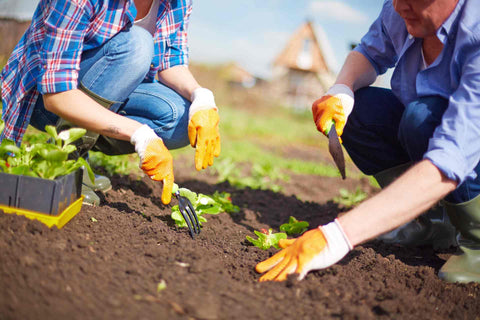
Property Taxes Reduction
- Tax Exemption: Homesteading provides the first $25,000 to $75,000 of appraisal as an exemption, which means that only taxes are charged on the total value of the property above the set base amount.
Forced Sale Immunity
- Protection from Creditors: Homesteading provides a debtor with a tax policy different from the rest of the bankruptcy. This policy exempts the owner from forced property sales to pay the debts, but only in mortgage foreclosure or tax default cases.
Surviving Spouse Advantages
- Rights Retention: Homesteading laws allow some surviving spouses to maintain rights to the property, but they must earn a living, maintain social status, and pay any outstanding mortgage and debts.
Homestead Requirements
-
Principal Residence: The house in question is considered eligible for the homesteading benefits only as long as it is the one you live in and mainly occupy.
-
State-Specific Laws: The efficiency of homestead exemptions and the extent of tax advantages are state-dependent.
-
Exemption Duration: The homestead exemption period ends when the primary residence status is changed to non-primary, establishing a new residence as the legal address.
Freedom and Independence
-
Less Restriction: Homesteading is a way of life featuring fewer restrictions in comparison to the urban way; it gives better opportunities for the people to get freedom and lack underlying dependence on others
-
Personal Pace: This way, you can amble and do what you want independently. Strict rules that manage human activity in urban areas would not be possible.
Satisfaction of Living Securely and Responsibly
-
Creativity and Self-Sufficiency: Homesteading is all about good creative problem-solving through your property management and how you can use your land.
-
Quality of Life: It guarantees that you understand the facts and is assured that it is made from organic and eco-friendly ingredients, encouraging you to choose healthy and lasting products.
-
Skill Development: Engaging in homesteading practices transmits many important skills and noble attributes that could continue benefitting the family.
These advantages prove that purchasing property is very budget-friendly and safe. It would also grant you independence, self-sufficiency, and personal enjoyment.
Conclusion
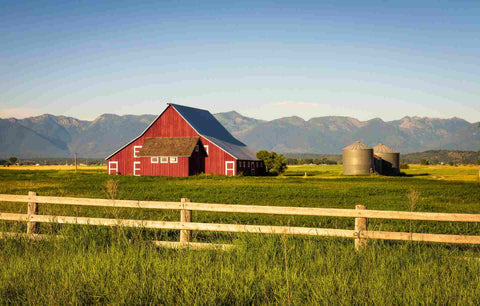
In summary, the acquisition of free land from the U.S. government for homesteading ended, yet the dream of possessing land and living a self-sufficient life will go ahead through alternative channels.
Landownership development in the state is possible through crisis programs and cooperative development models, each of which has benefits and challenges.
Homesteading now is about empowering us to make smart use of these opportunities and gain more in character, self-entertainment, and longer-lasting gratification.
For people curious to try out this exciting path, the initial move is to do comprehensive research and get along with groups of people with the same mindset.
Start your homesteading journey by recognizing the practice's alternatives. This will help you move closer to realizing self-reliance and interaction with nature.

